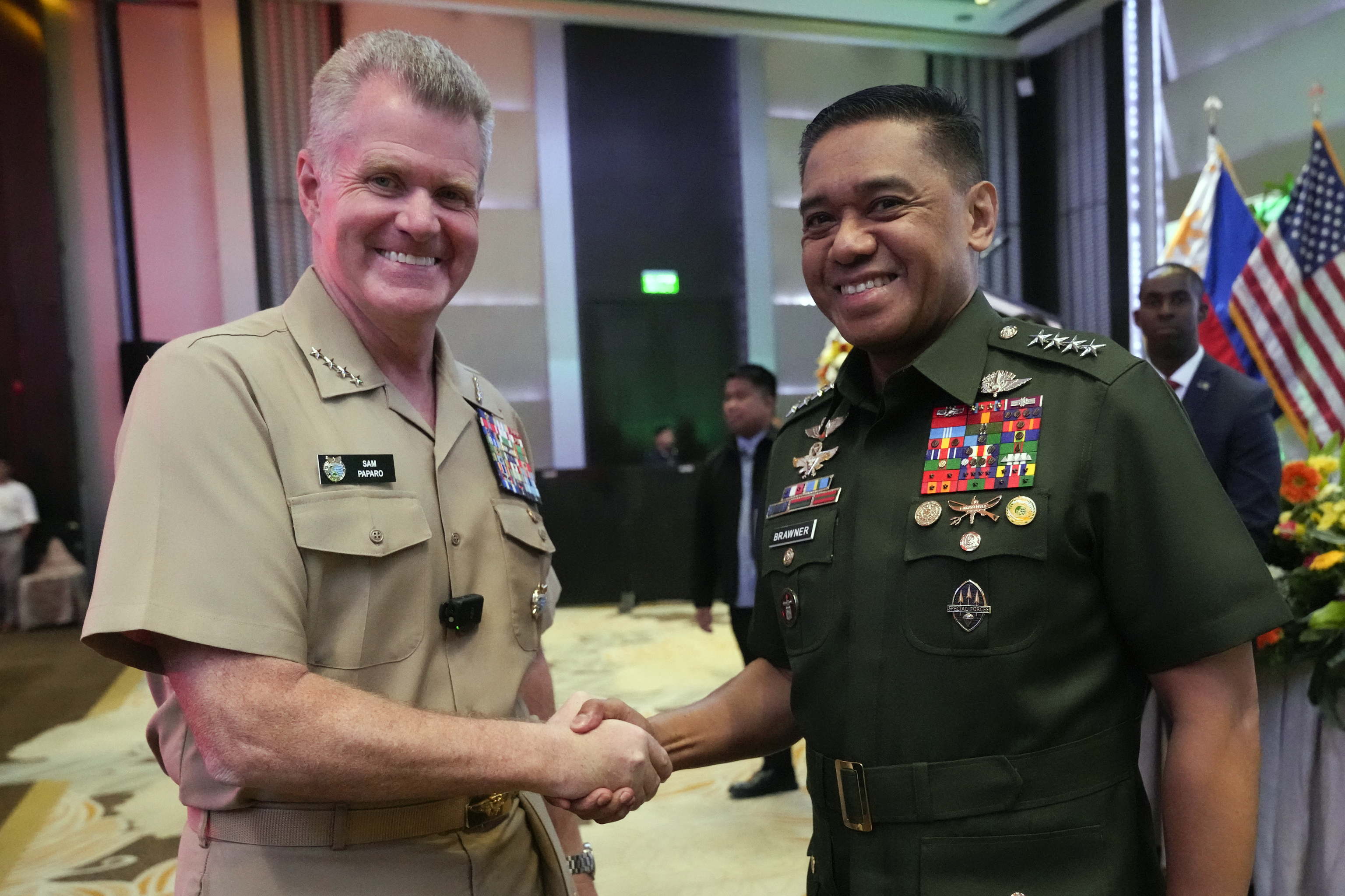China deployed "an excessive force" of 40 ships that blocked two Philippine vessels from delivering food and other supplies to Manila's largest coast guard ship in a disputed shoal in the latest flare-up of their territorial disputes in the South China Sea, Philippine officials said Tuesday.
China and the Philippines blamed each other for the confrontation on Monday in Sabina Shoal, an uninhabited atoll both countries claim that has become the latest flashpoint in the Spratlys, the most hotly disputed region of the sea passage that is a key global trade and security route.
China and the Philippines have separately deployed coast guard ships to Sabina in recent months on suspicion the other may act to take control of and build structures in the fishing atoll.
The hostilities have particularly intensified between China and the Philippines since last year and Monday's confrontation was the sixth the two sides have reported in the high seas and in the air. The confrontations have sparked concerns of a larger conflict that could involved the United States, the longtime treaty ally of the Philippines.
The Philippine coast guard said the "excessive force" of Chinese coast guard and navy ships, along with 31 suspected militia vessels, illegally obstructed the delivery of the food supplies, including an ice cream treat for the personnel aboard the BRP Teresa Magbanua as the Philippines marked National Heroes' Day on Monday.
The Philippine coast guard said it "remains steadfast in our commitment to uphold national interests and ensure the safety and security of our waters" and urged "the China coast guard to abide with the international law and stop deploying maritime forces that could undermine mutual respect, a universally recognized foundation for responsible and friendly relations among coast guards."
In Beijing, China's coast guard said that it took control measures against two Philippine coast guard ships that "intruded" into waters near Sabina Shoal. It said in a statement that the Philippine ships escalated the situation by repeatedly approaching a Chinese coast guard ship. The Chinese coast guard did not say what control measures it took.
China has rapidly expanded its military and has become increasingly assertive in pursuing its territorial claims in the South China Sea, which Beijing claims virtually in its entirety. The tensions have led to more frequent confrontations, primarily with the Philippines, though the longtime territorial disputes also involve other claimants, including Vietnam, Taiwan, Malaysia and Brunei.
Chinese and Philippine coast guard ships have collided near Sabina, which Beijing calls Xianbin and Manila refers to as Escoda prior to Monday.
Sabina Shoal lies about 140 kilometers (85 miles) west of the Philippine province of Palawan, in the internationally recognized exclusive economic zone of the Philippines.
Sabina is near the Second Thomas Shoal, another flashpoint where China has hampered the Philippine delivery of supplies for Filipino forces aboard a long-grounded navy ship, the BRP Sierra Madre. Last month, China and the Philippines reached an agreement to prevent increasingly hostile confrontations at the Second Thomas Shoal, allowing a Philippine vessel to deliver food supplies a week later without any hostilities.
